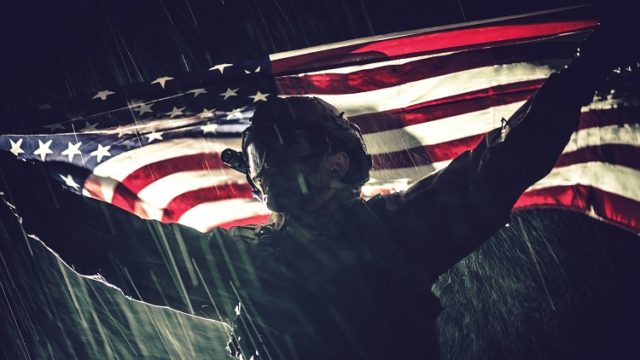Virginia Kruta, The Daily Wire
I set out to write something about Veterans Day — a day that, since I was a little girl, we always recognized in my house. The military tradition, as many of you know, runs deep in my family. I spent ten years in the Army, between Reserve time and active duty. My dad served eight years and spent nearly a full year in Afghanistan. Uncle Bill went to Vietnam in 1968 as a combat engineer. During World War II, one grandfather served on Guam with the Army Air Corps — the other survived the Battle of the Bulge and the liberation of the concentration camps. Great-uncle Willie landed on Utah Beach on June 6, 1944. Research in recent years has led me to several Union soldiers and about a dozen Revolutionary War veterans as well.
I write this not to command respect for myself or my family — because I know my family is just one of hundreds like it here in the United States. Maybe it’s like your family. I write this because even when I was a small child, we attended parades on Veterans Day. We watched the World War II veterans — who were in their 60s then — march proudly in the uniforms they kept on mothballs for the rest of the year. We thanked them for their service and we understood how important that service was.
But when I sat down to write today, I wasn’t thinking about Veterans Day. I was thinking about “Swing Kids.” Yes, you read that right. I was thinking about a 1993 movie about teenagers in 1930s Germany who defied calls to join the Hitler Youth and rebelled by listening to American swing music. “Swing Heil” is their greeting of choice, mocking the Nazi salute.
Of course, as the movie progresses, anyone who knows their history can predict what happens — some join the HJ by choice, some because they’re forced. Some see the Nazis for who they are, and some stand up to them — and some are silenced for trying. One stands his ground, singing from the truck that is to take him to a work camp: “It don’t mean a thing, if it ain’t got that swing …”
I was thinking about “Swing Kids” because it still rings true — and has implications in today’s culture as well, particularly now. Someone said last week on Twitter that many have asked themselves what they would have done if they were alive in the 1930s. Would they have protected the Jews or turned them over? Would they have spoken out even if the threat of death was there — whether implicit or explicit? As anti-semitic demonstrations and attacks continued to rise, the answer is truly a simple one: what you’re doing now is what you would have done then.
Remember: “It don’t mean a thing …”






